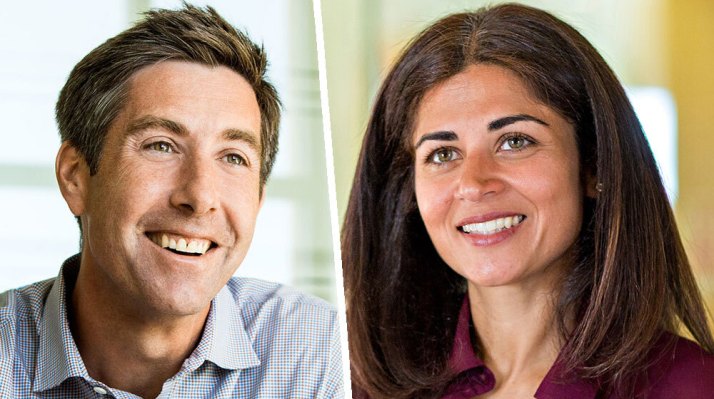The other week TechCrunch’s Extra Crunch Live series sat down with Accel VCs Sonali De Rycker and Andrew Braccia to chat about the state of the global startup investing ecosystem. Given their firm’s broad geographic footprint, we wanted to know what was going on in different startup markets, and inside a number of business-model varietals that we are tracking, like API-focused startups and low-code work.
As with all Extra Crunch Live episodes, we’ve included the full video below, along with a number of favorite quotes from the conversation.
Above the paywall, I wanted to share what De Rycker said about the European startup ecosystem: It’s been stuck in my head for the last day, because her comments points to a future where there is no single center of startup gravity.
Instead, considering her bullishness on her local scene, we’re going to see at least three major hubs, namely North America with a locus in the United States, Asia with a possible capital in India, and Europe, with a somewhat distributed layout.
Here’s De Rycker from our chat, responding to my question about how active the European venture and startup scene is today (transcript has been lightly edited for clarity):
What has surprised me even more [than change in the European startup scene over time] is the acceleration in the last couple of years. And I think it’s continued in the last few months, despite the COVID environment.
And that’s really because Europe isn’t just one location, right? It’s a collection of different ecosystems, different locations, different hubs. At any point in time there are 15 to 20 cities that are relevant, and they’ve all sort of reached this tipping point. And together, Europe is at this inflection point, in terms of the quality of entrepreneurs, [and] the number of opportunities. And it feels like it’s all come together with the digitization that’s going on that we’re all, you know, very much believing in right now. And the fact that there’s a ton of capital around. So I would say that we’re seeing a pretty frenetic pace, more than, candidly, pre-COVID, which is not something we expected. […]
But I would say that overall, Europe is incredibly active [regarding] deal pace, deal count, I wouldn’t say it’s very different from what I understand to be the situation in the U.S.
Undergirding what De Rycker said above, TechCrunch recently reported on the financial results of TransferWise, a European fintech unicorn that grew 70% in the last year, to £302.6 million in revenue. Toss in Adyen’s epic run as a public European tech company and there’s lots to celebrate from the continent, even if we don’t read enough about here in the States.
Extra Crunch Live continues with some really damn fun stuff coming up (including a few more that I am hosting). So, make sure you’re in and ready for the next edition as we dig deeper into season two.
Hit the jump for the full chat and some further bits from the transcript.
Sonali De Rycker and Andrew Braccia
Here’s the full video:
And, now, a few more bits that stood out as I went back through the conversation.
Here’s Braccia discussing the state of late-stage investing today, again lightly edited for clarity:
We don’t do a lot of later-stage investing. We focus more on that growth, bootstrap[ed], you know, lightly-capitalized, profitable business where we’ve built a relationship for a long period of time. I would say that later-stage growth investing is where it becomes very challenging in a market that’s moving really quickly because you just might not have as much time as you would like to be able to really process whatever information that’s there to make a decision where you’re deploying a significant amount of capital and what is probably still a pretty immature business. That’s an area where we’ll do the occasional later-stage venture investment, but we tend to be [focused] in our early-stage and growth business.
Braccia on investor-side price sensitivity:
What we’re really focused [on is] the terminal value of the company, right? Owning more for less of something that inevitably isn’t worth very much isn’t what drives our business. And so the real decision that we have to make is: In any given market, there is usually a winner-take-all, to winner-take-most in a category. And we really need to hold ourselves accountable to try and to make sure that we’re making the right decision on which company we have the opportunity to invest in.
And sometimes we don’t have the opportunity to invest in the winner, and it probably doesn’t make sense to maybe invest in the category and have to move on to two different categories. And so it’s really driven by the individual company and our belief in the size of the outcome and the potential of the market versus the entry valuation of price.
And to close, here’s De Rycker on being a global investor today:
Right now, it’s pretty obvious to be a global investor. I can tell you 20 years ago it took a lot of conviction to set it up, and a lot of commitment to keep going — a lot of people have tried it and left. And the way we did it is that we have a fund in London. So we’re making the investment decisions from that early model. We have a fund in India that does the same.
And, of course, Accel is also active here in the United States. Anyhoo, hit the video if you want to take a listen. It was a fun chat.
